All Stories
-
 Psychology
PsychologyProcrastination may hurt your health — but you can change that
Scientists have linked procrastination to mental and physical health problems. But don’t be too hard on yourself — there are steps you can take.
By Meghan Rosen -
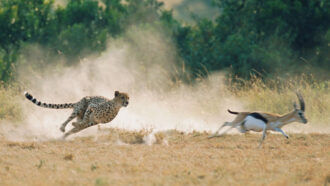 Ecosystems
EcosystemsScientists Say: Food web
All the species in an ecosystem and the feeding relationships between them get summed up with this handy picture.
-
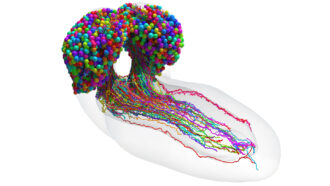 Brain
BrainScientists mapped every nerve cell in this insect brain
Researchers have built a “connectivity map” of all the nerve cells in the larval fruit fly brain and how they link together.
-
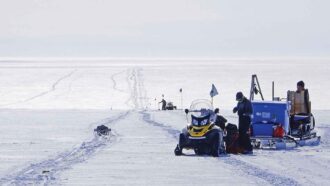 Earth
EarthA natural ‘cathedral’ lurks deep under Antarctic ice
By drilling into this cavern, scientists have opened a window into the mysterious world of hidden lakes, their occupants — and rivers that run uphill.
By Douglas Fox -
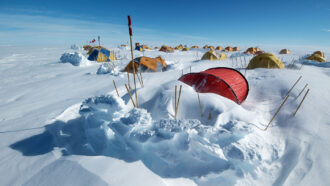 Earth
EarthUnder the ice, a hidden lake hints at its origin — and coming end
Lake Mercer may serve as a model for better understanding the birth and life of Antarctica’s hundreds of subglacial lakes.
By Douglas Fox -
 Health & Medicine
Health & MedicineHumans might be able to hibernate during space travel
Scientists are studying how animals hibernate and developing new technologies to help humans sleep through space travel.
-
 Brain
BrainLet’s learn about the science of language
The languages we speak may help shape how we see, smell and hear the world around us.
-
 Math
MathScientists Say: Möbius strip
Möbius strips may be easy to make, but they have some pretty mind-bending properties.
-
 Earth
EarthOne collision could have formed the moon and started plate tectonics
A hypothetical planet slamming into Earth 4.5 billion years ago might have set subduction into motion.
By Nikk Ogasa -
 Planets
PlanetsResearch on exoplanets took top award at 2023 Regeneron ISEF
Six young researchers took home the top awards, each valued at a minimum of $50,000. Hundreds more shared nearly $9 million in prizes at international event.
-
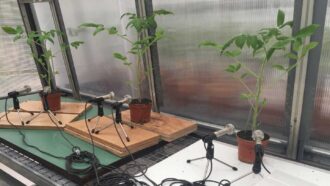 Plants
PlantsAnalyze This: Plants sound off when they’re in trouble
When dry or cut, tomato and tobacco plants make sounds too high for humans to hear. Such sounds could provide a way to snoop on crops.
-
 Health & Medicine
Health & MedicineNew patch might replace some finger-prick testing of blood sugar
A finalist at Regeneron ISEF created a wearable patch that turns yellow when someone’s blood-sugar level gets high enough to need an insulin shot.